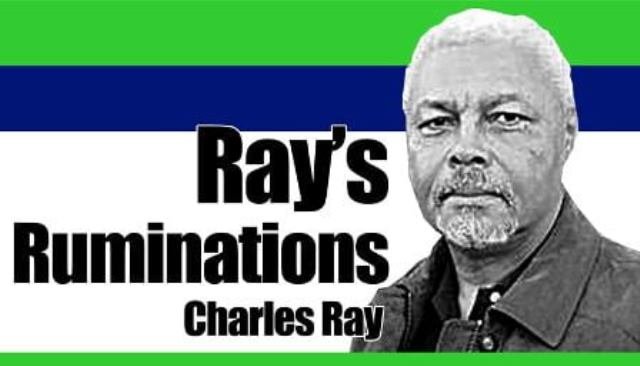
Recently, I was asked to speak to a group of talented college seniors participating in a writing workshop that I once taught on techniques for writing effective op-eds and blog posts.
During the question and answer portion of my presentation, one of the students asked the following question: “If we as students write op-eds in today’s hyperpartisan age where you’re punished for what you wrote even in the distant past, if we want government jobs, in the diplomatic service for instance, how do we avoid future recriminations?”
A complex question that is either easy or difficult to answer depending on your point of view and sense of self. The student was right about being punished in the future for opinions or statements (oral or in writing) from your past.
Today’s politicians, and even some of our senior bureaucrats, take a punitive view of anything you might’ve done in your past that they disagree with. In most cases not for the purpose of determining your qualifications for the job, but to get publicity or to make a political statement of their own.
My response to the student was simple. If you don’t wish to be held accountable for positions that someone in the future will disapprove of, the only choice you have is to not have a position. If you say nothing, you can’t be accused of saying or writing something someone disagrees with. I don’t recommend this action, though, because it also marks you as a person of no views whatsoever, and probably one with no guts or sense of confidence in yourself. I say, be honest with your opinions and be true to yourself. At some point in the future, someone might express disapproval or disagreement, but that’s part of life. Moreso in today’s world perhaps than ever before.
Here’s something, most people might not think of or might not have noticed. When it comes to working in government in jobs that require coordination with the legislative branch, it’s a lottery. You can suffer if you’ve never said a word.
I told the students about my experience when I was nominated to be American ambassador to Cambodia. This was a completely noncontroversial nomination. I’d never said or written anything about Cambodia, and most of the senators in congress couldn’t even have found it on a map. Despite that, the senate delegation from North Dakota, a state that I’d at that point in my life been in once, briefly stopping at the US Air Force Base at Minot on a flight to Seattle, put a hold on my nomination that delayed my hearing and my arrival in Cambodia by six months.
Why was this done? It had nothing to do with me or Cambodia. There was a polluted lake in North Dakota that the state wanted to drain, but it was close to the Canadian border and the polluted water would flow there. The Canadians, of course, said ‘no way.’ They were already suffering enough from acid rain caused by US factory pollution.
The senators, though, wanted to pressure the administration and the Department of State to put pressure on the Canadians to relent and take our dirty water. Their way of applying that pressure was to hold up State Department nominations requiring senate confirmation, to wit, the assistant secretary of consular affairs and the ambassador to Cambodia, neither of which had a thing to do with US-Canadian relations.
I never learned, in fact, what the logic behind their choices were, only that it took pressure from many of their senatorial colleagues to get them to lift the hold.
The moral of that story is that in today’s world, if you work in government, you’re subject to the mercurial whims of blindly partisan politicians who spend more time looking for something to oppose than to legislating for the benefit of their constituents or the country as a whole.
In such a world, where you’re as likely to be damned if you don’t, you might as well do. If you feel strongly about something and can express your opinion logically and without rancor, then do so.
In the end, it’s more important that you can look yourself in the mirror and be satisfied with what you see than to try and satisfy people who will never be satisfied. | NWI




